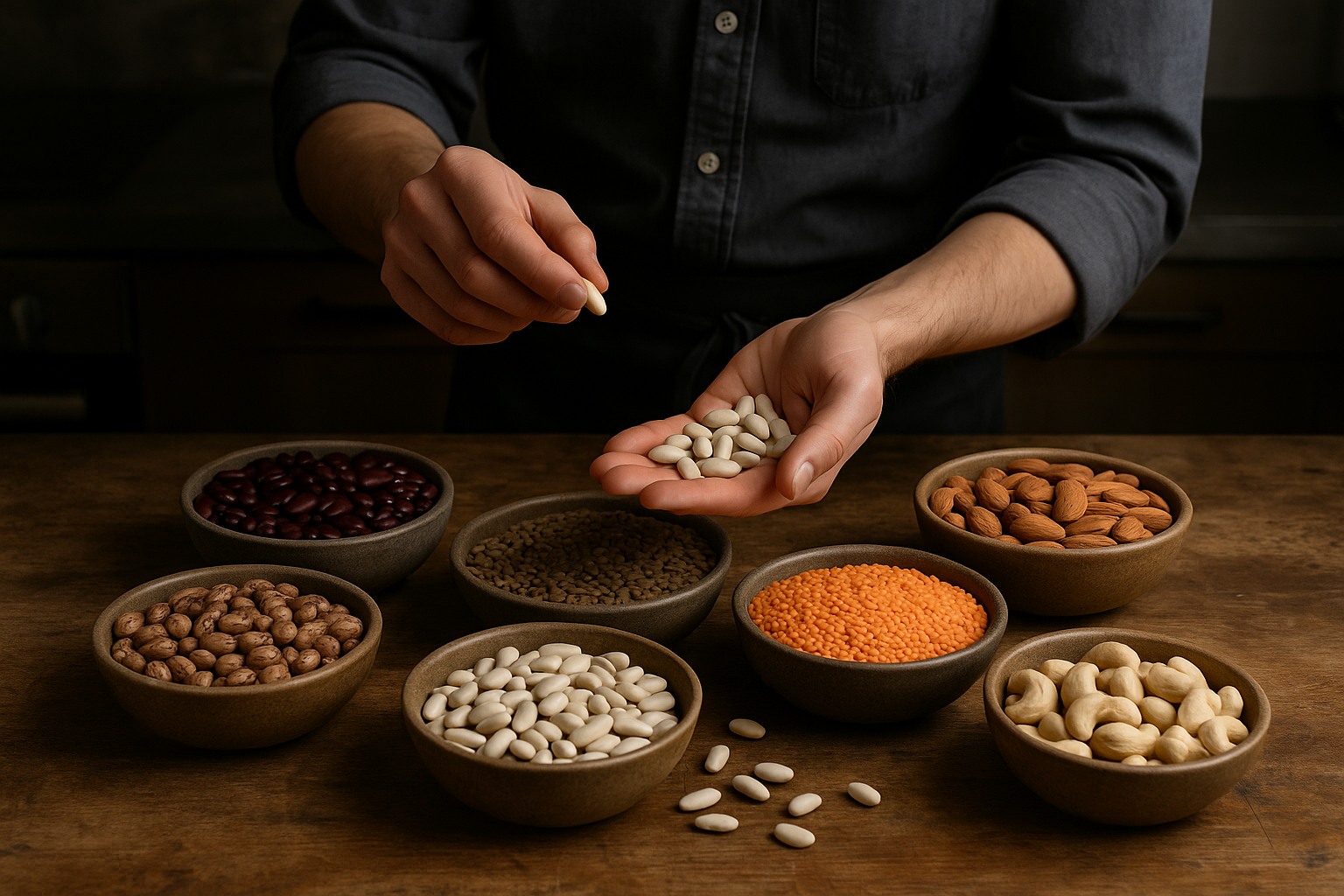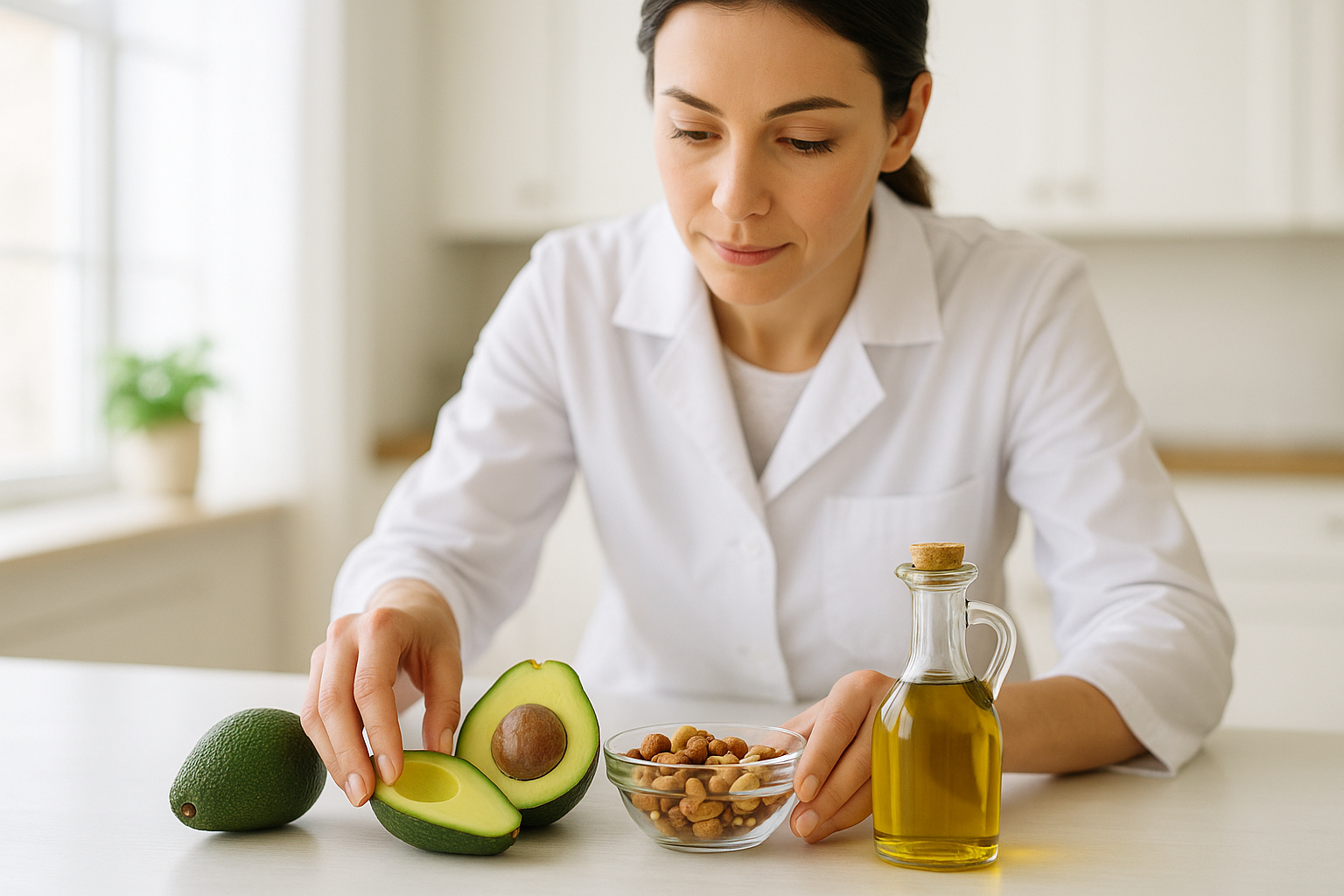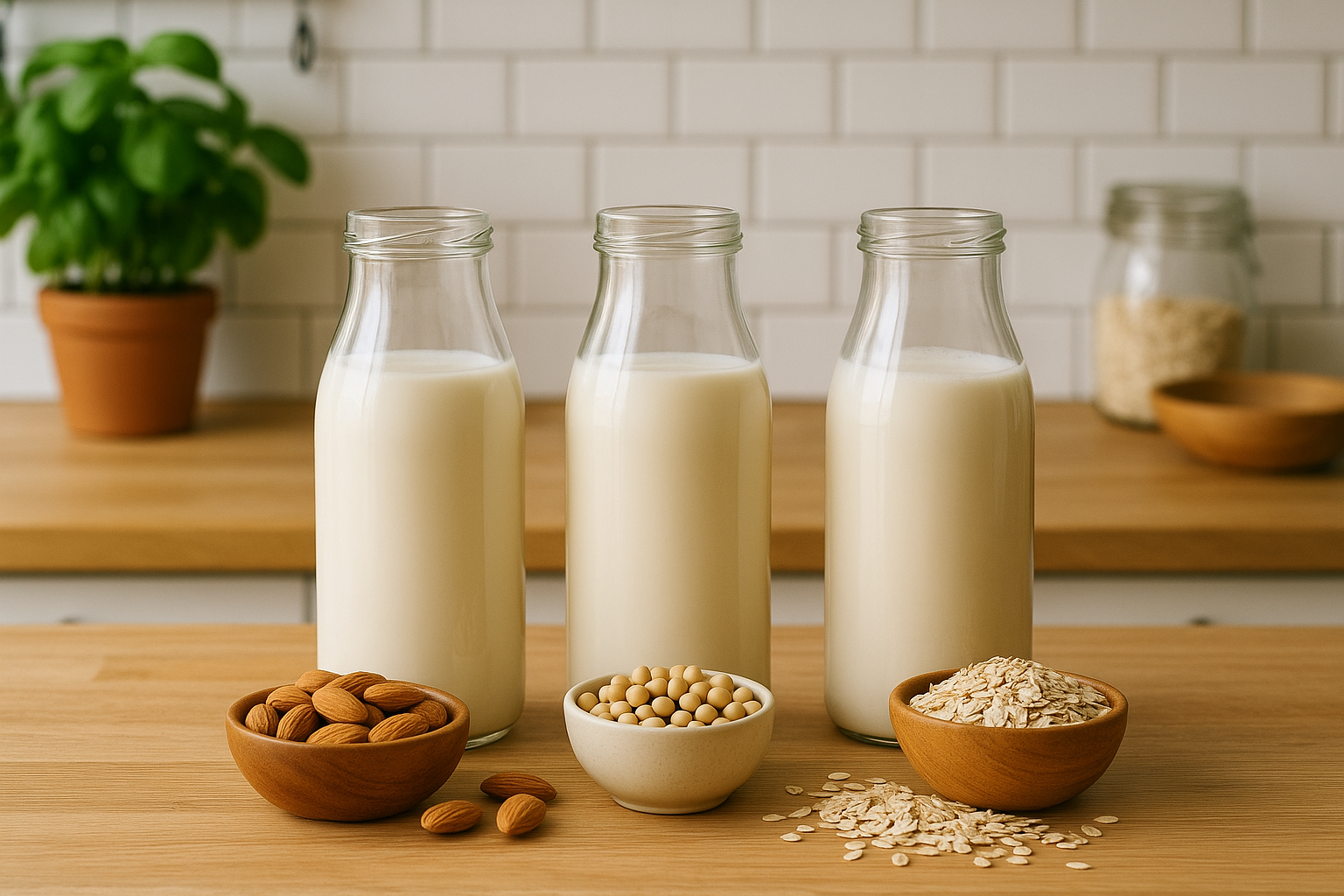Beyond Protein Powder: The Ultimate Guide to Plant-Based Nutrition
In recent years, the shift towards plant-based nutrition has gained significant momentum, transcending beyond the confines of veganism and vegetarianism to become a mainstream dietary choice. This movement is fueled by a growing awareness of the environmental impact of animal agriculture, health concerns associated with excessive meat consumption, and a desire for more sustainable living. Plant-based nutrition is not just about eliminating animal products; it's about embracing a diverse range of foods that provide essential nutrients in a sustainable manner. This guide delves into the intricacies of plant-based nutrition, exploring various aspects that extend far beyond the ubiquitous protein powder, offering a comprehensive understanding of how to optimize health and well-being through plant-based eating.
Understanding Plant-Based Proteins

While protein is often synonymous with animal products, the plant kingdom offers a rich array of protein sources that can meet dietary needs effectively. Legumes, such as lentils, chickpeas, and beans, are powerhouses of protein and fiber. Quinoa and amaranth, ancient grains, provide complete proteins, containing all nine essential amino acids. Nuts and seeds, including almonds, chia, and hemp, offer not only protein but also healthy fats and micronutrients. Understanding the amino acid profiles of these foods is crucial for constructing a balanced diet. Combining different plant proteins, such as rice and beans or hummus and whole grain bread, can ensure a complete amino acid intake, making plant-based proteins a viable and healthy alternative to animal proteins.
The Role of Fiber in Plant-Based Diets

Fiber is a cornerstone of plant-based diets, contributing to digestive health, weight management, and the prevention of chronic diseases. Unlike animal products, plants are abundant in dietary fiber, which aids in maintaining bowel health, lowering cholesterol levels, and controlling blood sugar. Soluble fiber, found in oats, apples, and carrots, dissolves in water to form a gel-like substance, helping to lower glucose levels and cholesterol. Insoluble fiber, present in whole grains and vegetables, adds bulk to the stool and aids in its passage through the digestive tract. The high fiber content in plant-based diets is linked to reduced risks of heart disease, type 2 diabetes, and certain cancers, highlighting its essential role in maintaining overall health.
Essential Vitamins and Minerals from Plants

Transitioning to a plant-based diet requires awareness of essential vitamins and minerals that might be less readily available in plant sources. Vitamin B12, primarily found in animal products, is crucial for nerve function and red blood cell production. Plant-based eaters can obtain B12 through fortified foods or supplements. Iron, another critical nutrient, is abundant in plant foods like spinach, lentils, and tofu, though it is less bioavailable than the heme iron in meat. Consuming vitamin C-rich foods alongside iron-rich plants can enhance absorption. Calcium, vital for bone health, can be sourced from fortified plant milks, leafy greens, and almonds. Understanding these nutrient sources ensures a balanced and nutritionally complete plant-based diet.
The Importance of Healthy Fats

Healthy fats are integral to a balanced diet, playing a crucial role in brain health, hormone production, and nutrient absorption. Plant-based diets can be rich in healthy fats, particularly from sources like avocados, nuts, seeds, and olives. Omega-3 fatty acids, essential for heart and brain health, are found in flaxseeds, chia seeds, and walnuts. Unlike saturated fats found in animal products, these plant-based fats can help reduce inflammation and lower the risk of chronic diseases. By incorporating a variety of these healthy fat sources, individuals can ensure they receive the necessary fatty acids for optimal health while adhering to a plant-based lifestyle.
Exploring Plant-Based Dairy Alternatives

Dairy alternatives have become a staple in plant-based diets, offering options for those who are lactose intolerant or choose to avoid animal products. Almond, soy, oat, and coconut milks are popular choices, each with unique nutritional profiles. Soy milk, for example, is rich in protein and often fortified with calcium and vitamin D, making it a comparable alternative to cow's milk. Cashew and macadamia milks offer creamy textures, perfect for coffee or desserts. Additionally, plant-based cheeses and yogurts have evolved, providing delicious and nutritious options without the saturated fat and cholesterol found in traditional dairy. Exploring these alternatives can enhance dietary variety and enjoyment.
The Environmental Impact of Plant-Based Eating

One of the most compelling reasons for adopting a plant-based diet is its positive impact on the environment. Animal agriculture is a major contributor to greenhouse gas emissions, deforestation, and water pollution. By reducing reliance on animal products, individuals can significantly lower their carbon footprint. Plant-based diets require less land, water, and energy compared to meat-based diets, making them a more sustainable choice. Furthermore, the reduced demand for livestock can lead to a decrease in habitat destruction and biodiversity loss. Embracing plant-based nutrition not only benefits personal health but also contributes to the preservation of our planet for future generations.
Plant-Based Diets and Athletic Performance

Contrary to the myth that plant-based diets lack the necessary nutrients for athletic performance, many athletes thrive on plant-based nutrition. These diets can provide ample carbohydrates for energy, protein for muscle repair, and antioxidants to reduce inflammation. Elite athletes like ultramarathoner Scott Jurek and tennis champion Venus Williams have adopted plant-based diets, attributing enhanced recovery times and improved performance to their dietary choices. By focusing on nutrient-dense foods, such as whole grains, legumes, and a variety of fruits and vegetables, athletes can meet their nutritional needs and maintain peak performance without relying on animal products.
The Science of Satiety: Feeling Full on Plants

Satiety, or the feeling of fullness, is an important factor in weight management and overall well-being. Plant-based diets, rich in fiber and water content, naturally promote satiety. Foods like beans, whole grains, and vegetables take longer to digest, providing a sustained release of energy and keeping hunger at bay. Additionally, the high volume and low-calorie density of plant foods allow for larger portions without excess caloric intake. By focusing on whole, unprocessed foods, individuals can enjoy satisfying meals that support healthy weight management and reduce the risk of overeating, making plant-based diets both effective and enjoyable.
Plant-Based Diets and Mental Health

Emerging research suggests a strong link between diet and mental health, with plant-based diets showing promise in supporting emotional well-being. Nutrient-rich plant foods, such as leafy greens, legumes, and nuts, are high in antioxidants, vitamins, and minerals that contribute to brain health. Omega-3 fatty acids, found in flaxseeds and walnuts, are known to support cognitive function and reduce symptoms of depression. Furthermore, the reduction of processed foods and the emphasis on whole, natural ingredients can lead to improved mood and decreased anxiety. By nourishing the body with a balanced plant-based diet, individuals can support their mental health and overall quality of life.
Addressing Common Myths and Misconceptions

Despite the growing popularity of plant-based diets, several myths and misconceptions persist. One common myth is that plant-based diets are inherently protein-deficient, yet, as discussed, there are numerous plant sources that provide adequate protein. Another misconception is that plant-based diets are expensive and inaccessible, though many staple foods like beans, rice, and seasonal produce are cost-effective. Some believe that plant-based diets lack variety and flavor, but the diversity of global cuisines offers endless possibilities for delicious meals. By addressing these myths, we can better understand and appreciate the benefits and feasibility of plant-based nutrition.
Practical Tips for Transitioning to a Plant-Based Diet

Transitioning to a plant-based diet can be a rewarding journey with numerous health benefits. Start by gradually incorporating more plant-based meals into your routine, experimenting with new recipes and flavors. Focus on whole foods, such as fruits, vegetables, grains, and legumes, and explore plant-based proteins and dairy alternatives. Planning meals and snacks ahead of time can help maintain nutritional balance and prevent reliance on processed foods. Joining plant-based communities, whether online or in-person, can provide support and inspiration. Remember, the goal is progress, not perfection, and every plant-based choice contributes to improved health and sustainability.
Embracing a Plant-Based Future

As we move towards a more conscious and sustainable future, the adoption of plant-based nutrition stands out as a pivotal choice for both individual health and global well-being. By embracing the diversity of plant foods, we can nourish our bodies, reduce our environmental impact, and foster a more compassionate world. The journey beyond protein powder is one of exploration and discovery, where the benefits of plant-based eating extend far beyond the plate. As more people embrace this lifestyle, the potential for positive change grows exponentially, paving the way for a healthier, more sustainable future for all.
